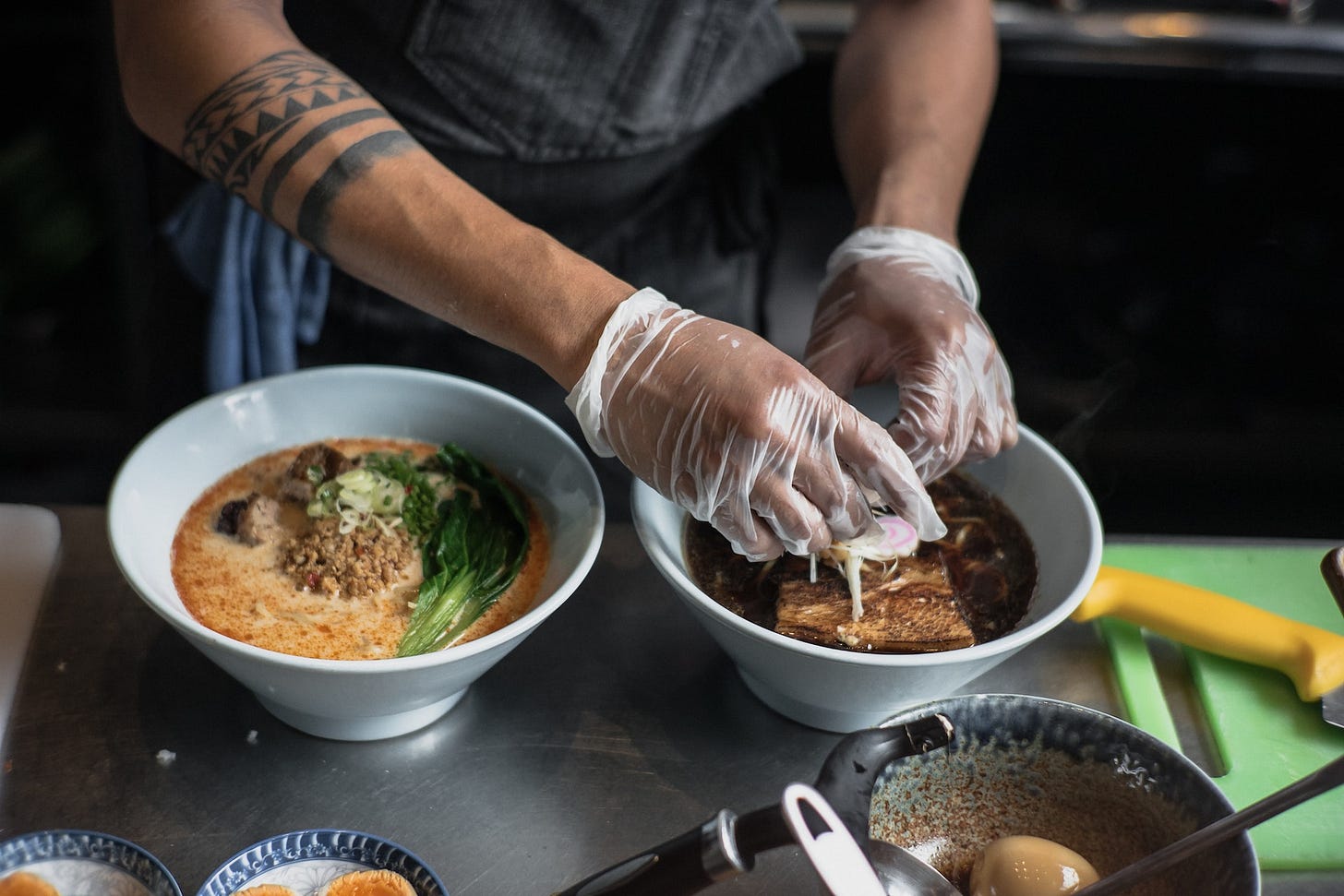"Is It Ever OK for a White Man to Open a Ramen Restaurant?"
And what to say if that white man is your friend.
Welcome to a Friday Q+A post! I'm tackling a reader question and following up with links to some fun and/or thought-provoking reads.

Reader
of asks:I have a white male friend, very talented, very creative and hardworking, who has been running a very successful and delicious ramen shop. I don't think he's ever been to Japan. The restaurant [name] is a Japanese word. I've eaten there multiple times, and been troubled by it since the beginning, and yet have never said anything, because this is how, in a tourist driven, small-scale community, he is able to live there full time and provide for his kids. The community where this restaurant is located is quite tight, and anyone saying something "negative" would be immediately marked. But then I wonder: what is the consequence of staying silent? I absolutely think there is one, yet so many white people think that just because something's in the world it's theirs to take.
I’m really interested in how others would and are framing conversations about cultural appropriation in the personal sphere, how it connects to history and current politics, and perhaps most importantly, how it is actually causing harm — and what to do about it? Like is a Japanese-inspired ramen shop by a white man ever okay? Especially when, like this shop, it is in a very white affluent area.
Do you or any fellow readers have any suggestions for how to broach this, or what paying proper respects might look like for his restaurant?
Related reading:
This is such an interesting question, and I think one that comes up for a lot of people with ties to the food service world, especially for those who live in a community where the vast majority of people are white. I've certainly had the experience of sitting in a restaurant serving food from another culture, cooked by a white chef and eaten by a roomful of almost entirely white patrons, in a space decorated with heavy-handed artwork evoking the food's country of origin — and wondering to myself if this is all just a little…offensive. This question becomes more complicated when that white chef is a friend.
The situation you describe has the other common issue of a white chef/owner living in a place sustained by tourism, and needing to stand out in a crowded field as well as capitalize on food trends that appeal to tourists. I certainly saw that when I lived in New Orleans, where another Creole restaurant wasn't going to bring in buzz, but an Instagram-friendly taco-and-mezcal spot probably would. Everyone else is doing it; why shouldn't they?
As innocuous as these decisions seem, I think they do cause harm. Here's how I see it.





